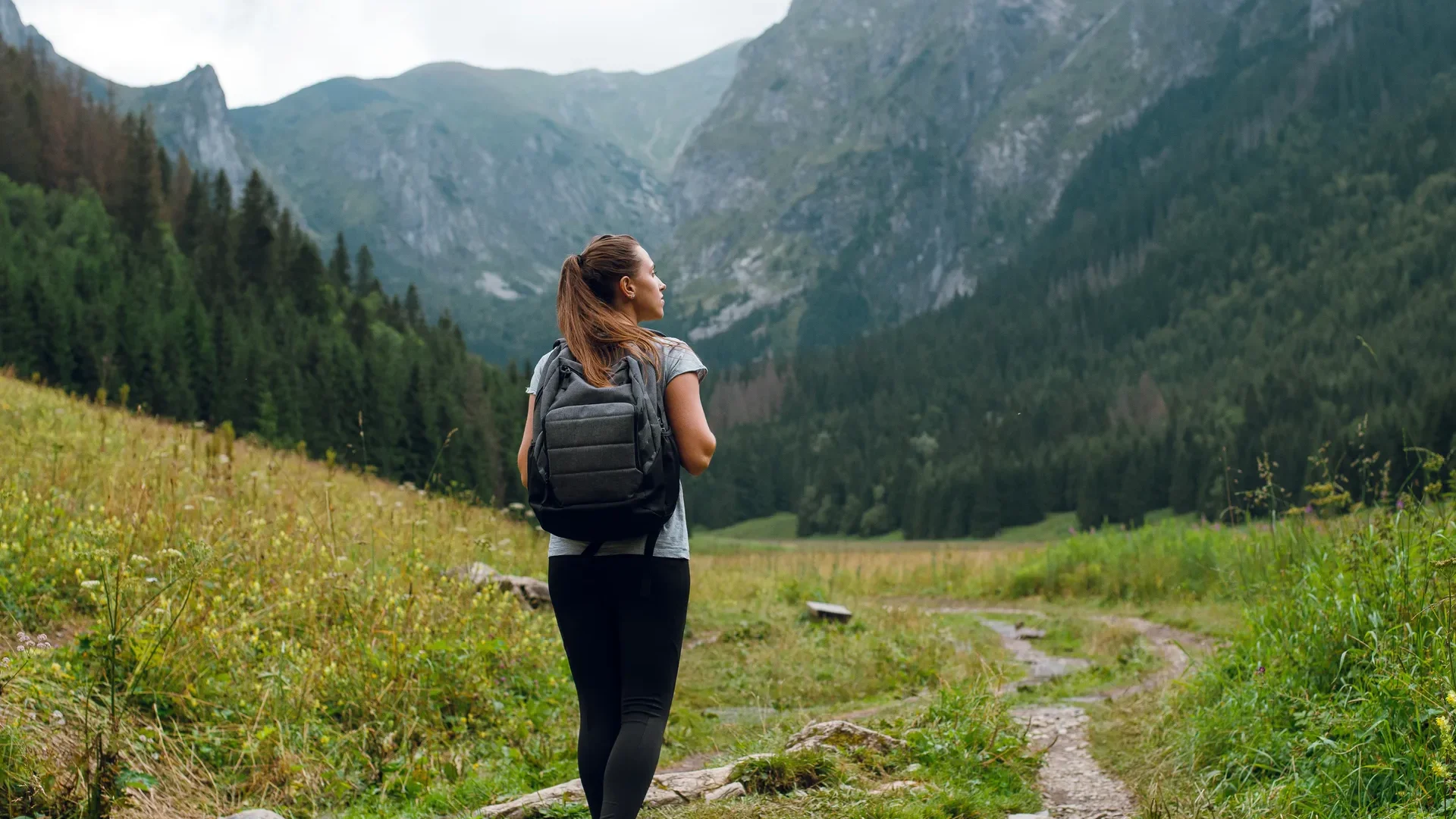Hiking is a beloved outdoor activity that not only connects us with nature but also offers numerous physical, mental, and emotional benefits. In an age where technology dominates our daily lives and stress levels are perpetually high, it is crucial to find ways to unplug and recharge. One of the best ways to achieve this is through regular hiking. Here’s a detailed look at why you should consider hiking at least once a month for your better health.
1. Physical Health Benefits

First and foremost, hiking is an excellent form of exercise that offers a full-body workout. Unlike running or cycling, which primarily target specific muscle groups, hiking engages muscles throughout the entire body.
Cardiovascular Fitness

Hiking is a fantastic way to improve cardiovascular health. Walking on uneven terrain and varying inclines challenges the heart and lungs, boosting endurance and overall cardiovascular fitness.
Muscle Strength and Tone

The diverse movements required during a hike—such as climbing, descending, and navigating obstacles—strengthen muscles in the legs, core, and even the upper body. This can help to improve muscle tone and strength over time.
Bone Density
Weight-bearing activities like hiking are crucial for maintaining healthy bone density. Regular hiking can help to prevent bone-related issues such as osteoporosis, particularly in older adults.
Weight Management
Hiking is an effective way to burn calories and manage weight. Depending on the intensity of the hike, you can burn between 400 to 700 calories per hour. Regular hiking can contribute to weight loss and maintaining a healthy weight.
Balance and Coordination
Navigating uneven terrain improves balance and coordination. This can be particularly beneficial for older adults, helping to prevent falls and improve overall stability.
2. Mental Health Benefits

Beyond physical health, hiking offers profound benefits for mental well-being. Regularly spending time in nature and engaging in physical activity can have a significant impact on mental health.
Stress Reduction
Nature has a calming effect on the mind. The sights, sounds, and smells of the great outdoors can significantly reduce stress levels. Hiking provides a break from the hustle and bustle of daily life, offering a chance to decompress and recharge.
Improved Mood
Physical activity, including hiking, triggers the release of endorphins, the body’s natural mood lifters. Regular hiking can help to combat feelings of depression and anxiety, leading to improved overall mood.
Enhanced Cognitive Function
Studies have shown that spending time in nature can improve cognitive function, including memory, attention, and problem-solving skills. The combination of physical activity and exposure to natural environments enhances brain function and creativity.
Better Sleep

Engaging in regular physical activity like hiking can improve sleep quality. The exertion helps to regulate sleep patterns, making it easier to fall asleep and stay asleep. Moreover, the mental relaxation achieved through hiking can contribute to more restful sleep.
3. Emotional Benefits

Hiking also provides several emotional benefits, fostering a deeper connection with oneself and the environment.
Connection with Nature
Spending time in nature can evoke feelings of awe and wonder. This connection to the natural world can inspire gratitude and a sense of peace. Hiking allows you to immerse yourself in the beauty of the environment, fostering a profound appreciation for nature.
Personal Accomplishment
Completing a hike, especially a challenging one, can provide a sense of accomplishment and boost self-esteem. Setting and achieving hiking goals can be incredibly rewarding and motivating.
Social Connections
Hiking can be a social activity, providing opportunities to connect with friends, family, and like-minded individuals. Sharing the experience with others can strengthen relationships and create lasting memories.
Mindfulness and Presence
Hiking encourages mindfulness and being present in the moment. The rhythmic nature of walking and the need to focus on the trail can help to quiet the mind and enhance awareness. This practice of mindfulness can lead to reduced stress and increased overall well-being.
4. Environmental Awareness

Hiking regularly can foster a deeper understanding and appreciation for the environment. This awareness is crucial in an era where environmental conservation is of utmost importance.
Conservation Efforts
By spending time in nature, hikers become more aware of the importance of preserving natural habitats. This awareness can lead to increased support for conservation efforts and environmentally friendly practices.
Leave No Trace Principles
Hiking promotes the principles of “Leave No Trace,” encouraging individuals to minimize their impact on the environment. Practicing these principles helps to protect natural areas for future generations.
Wildlife Appreciation
Hiking provides opportunities to observe wildlife in their natural habitats. This appreciation for wildlife can inspire efforts to protect and conserve animal species and their environments.
5. Adventure and Exploration

Hiking offers a sense of adventure and exploration that is hard to find in other activities. Each hike is a unique experience, with new trails, landscapes, and challenges to discover.
Exploring New Areas
Hiking allows you to explore new areas and landscapes. Whether it’s a local park, a national forest, or a remote mountain range, each hike offers a new adventure and a chance to discover the beauty of different environments.
Overcoming Challenges
Hiking presents physical and mental challenges, from steep climbs to unpredictable weather conditions. Overcoming these challenges can be incredibly rewarding and build resilience.
Varied Experiences
Each season offers a different hiking experience. From the vibrant colors of fall foliage to the serenity of a snowy winter trail, hiking provides varied and enriching experiences throughout the year.
6. Family Bonding and Education

Hiking is an excellent activity for families, providing opportunities for bonding and education.
Quality Time Together
Hiking offers a chance for families to spend quality time together away from screens and daily distractions. The shared experience of exploring nature can strengthen family bonds.
Educational Opportunities
Hiking is an educational experience, particularly for children. It offers hands-on learning about plants, animals, geology, and the environment. This can foster a love for nature and curiosity about the world.
Encouraging Healthy Habits
Introducing children to hiking can instill a love for physical activity and the outdoors. This can encourage lifelong healthy habits and an appreciation for nature.
7. Economic and Community Benefits

Hiking also offers economic and community benefits, contributing to local economies and fostering a sense of community.
Supporting Local Economies
Hiking can boost local economies by attracting tourists to natural areas. This supports local businesses, including hotels, restaurants, and outdoor gear shops.
Community Engagement
Hiking can foster a sense of community by bringing together people who share a love for the outdoors. Participating in local hiking groups or events can create a sense of belonging and community spirit.
Promoting Sustainable Tourism

Hiking promotes sustainable tourism by encouraging low-impact, eco-friendly activities. This can help to preserve natural areas while providing economic benefits to local communities.
8. Sustainable Fitness Routine
Incorporating hiking into your routine at least once a month offers a sustainable approach to fitness and well-being.
Low-Cost Activity
Hiking is a low-cost activity that requires minimal equipment. A good pair of hiking shoes and comfortable clothing are often all you need to get started. This makes hiking an accessible and affordable fitness option.
Adaptable to All Fitness Levels
Hiking is adaptable to all fitness levels, from easy, flat trails to challenging mountain climbs. This makes it an inclusive activity that can be enjoyed by people of all ages and fitness levels.
Long-Term Health Benefits

The physical, mental, and emotional benefits of hiking contribute to long-term health and well-being. Regular hiking can improve overall fitness, reduce stress, and enhance quality of life.
Conclusion
In conclusion, hiking at least once a month offers a myriad of benefits that contribute to physical health, mental well-being, emotional fulfillment, and environmental awareness. It provides a unique opportunity to connect with nature, explore new areas, and enjoy a sense of adventure. Whether you’re seeking physical fitness, mental clarity, or family bonding, hiking is an activity that can enrich your life in countless ways. So, lace up your hiking boots, grab your backpack, and set out on the trail to discover the transformative power of hiking.
